Most of the students go to the USA for studies. There are thousands of students who go for their Undergraduate and Master’s courses. Most of the students and other visa applicants get through the process. Some of them will get their visa rejected due to varied reasons. Some will receive 214 (b) Form. This form is issued by US Immigration stating the Denial of Visa. Let us know what actually is 214 (b) Form.
A student can reapply for a visa after getting a denial of visa through 214 (b) form.
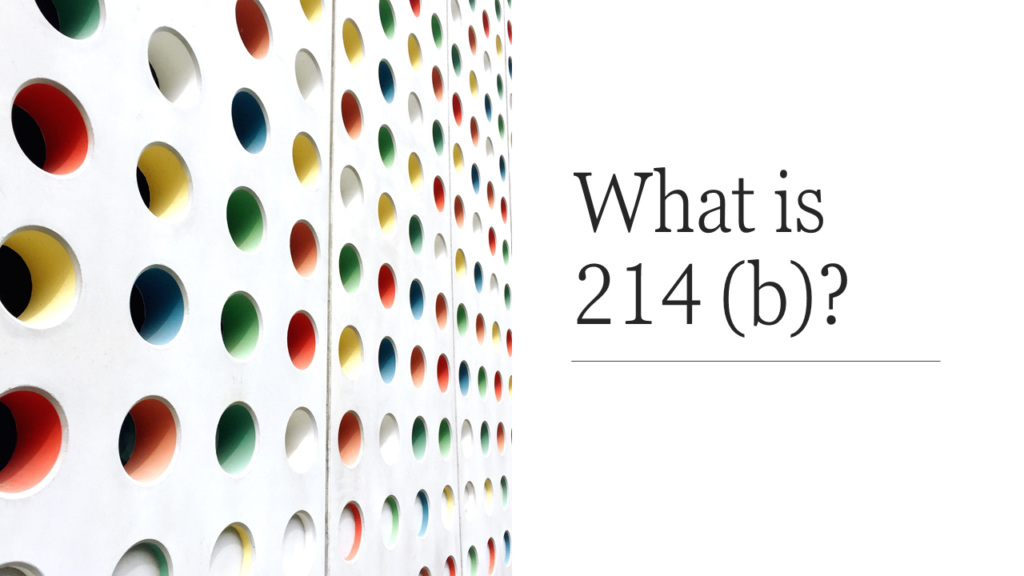
What is 214 (b)?
214 (b) is a subsection under the Immigration and Nationality Act in the US Immigration Law. This is the section under which it is decided whether a visa application can be denied or refused. US laws are vigilant regarding those who are entering into the USA. US officials closely observe non-immigrant visa applicants and the applicants need to prove that they are going to return to their home countries after finishing their studies or visit in the USA, be it study or visit. Visa applicants need to prove that they have no intention of staying back in the USA illegally or becoming immigrants.
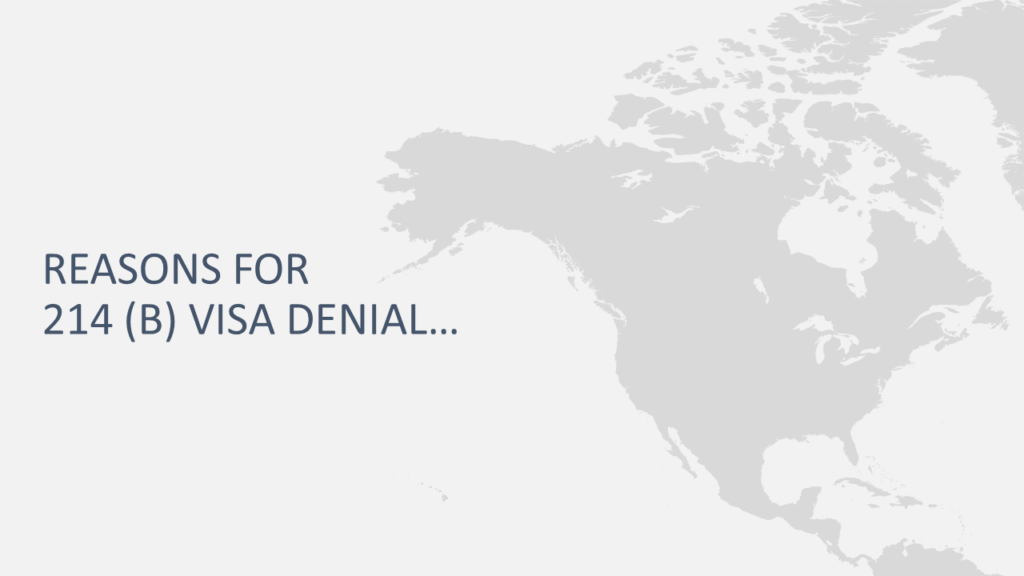
Let us see the reasons for 214 (b)Visa Rejection form
There are many reasons for the visa denial under 214 (b) section. Mentioned below are the main reasons for visa denial.
- If the visa officer feels that the applicant has no strong ties with the respective home country, he can reject the visa and tender a 214 (b) form.
Applicants need to show strong proof or determination that he or she has strong ties to the home country. Strong ties imply family, a job, own house, or any other assets you don’t want to leave behind. If the visa officer didn’t feel that you have enough reason to show strong ties to your home country, he might deny the visa application and hand you the 214 (b)form.
- If you did not do well in your interview, you might get your visa rejected.
Everything is counted in the interview, your conduct, behavior, gestures, confidence levels, dressing style, how honestly you gave answers to the questions asked by the visa officer, your eye contact, facial expressions, and your sitting posture etc. Hesitation to answer the questions of the officer raises a red flag. If you give any inconsistent answers to the questions or information furnished in the application form, you are definitely going to get a denial. All these observations go into reckoning your intentions, credibility, eligibility for a visa. If the visa officer feels that any of your documents are fraudulent or not relevant, he can deny the visa permission.
- If you overstayed in USA
Fit overstay profile is one of the reasons you will be served 214 (b). These are the set of profiles of people who overstayed in the USA and applied for extensions or migrated to the USA illegally. If your profile is one of these types, your visa will be rejected.
- Extending visas for longer times
Visiting the USA many times and extending your stay over there will raise suspicions. Immigration officers feel that you are immigrated into the USA and involved in something illegal or you have the idea of immigrating. This can lead to visa denial.
- Involving in crime
If you have any previous instances, interacting with police, getting arrested or detained by police due to any unaccepted practices, you will have a greater chance of your visa getting denied.
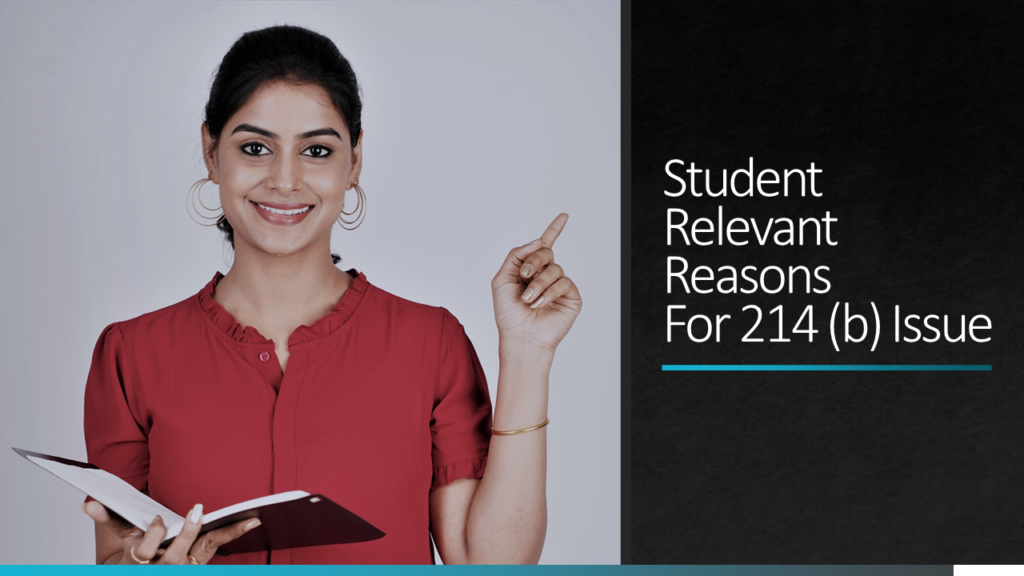
And here are reasons relevant to students:
You have higher chances of your visa getting denied for the reasons below.
- If you are trying to attend a community college or a not so popular university.
- If you can’t prove that you have economic ties to your home country.
- If you show your intention that you are going to stay in US after completion of your studies.
- If your program has nothing to do with your job or less demand in your home country.
- If you are above 30 years of age
- If you don’t have enough proficiency in English language.
- If you already studied in the USA and your academic track records and attendance weren’t good.
- Last but not least, if you don’t have enough funds
Besides all these reasons, there might be unprecedented and uncontrolled circumstances like human errors by the visa interviewer or any misunderstanding during your interview.
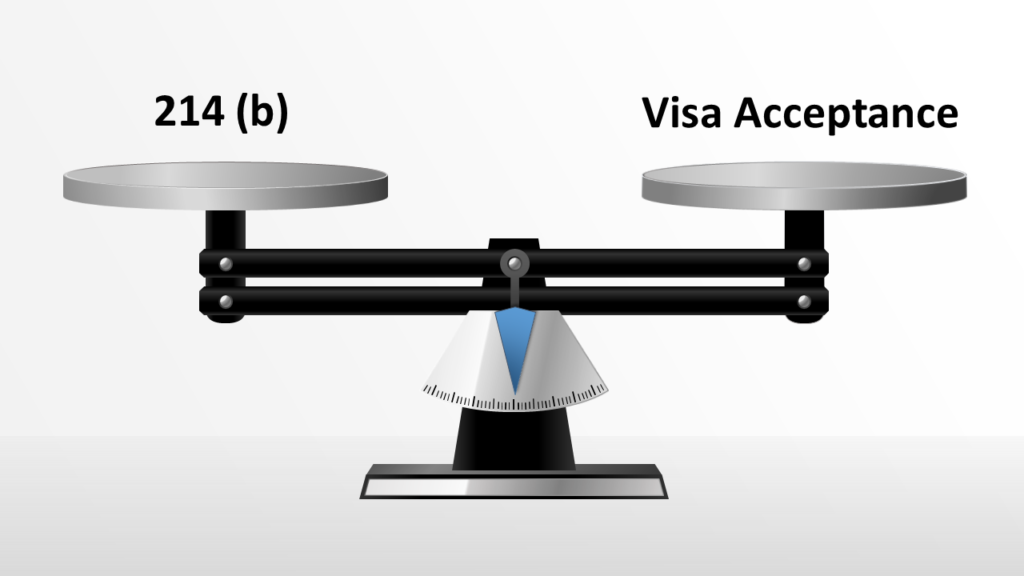
Here is what you can do to avoid 214 (b) Visa refusal:
First thing, it depends on your profile and there are other things that come into account.
- Get dressed well for the interview. Not particularly formal. You can wear casual clothes but look smart and well groomed.
- Try to show that you have strong ties with your home country. Explain how important your family is to you and how your higher studies in the USA will help you kickstart your career or get a promotion at your present job, etc.
- Be confident and feel that this is not the end of the world. Be relaxed and composed throughout the interview.
- Make sure that your answers are well aligned with the details mentioned in the documents and profile submitted to the university.
- Never submit any fraudulent documents, especially job-related documents and bank statements.
- If I stayed for an extended duration in the US previously, have a better explanation regarding the scenario.
- If you are attending a community college or not so popular or non-brand university, mention why you have chosen that particular institution and reason behind your decision.
- Do not forget to maintain eye contact and try to speak with minimal fumbling while answering the questions of the visa officer.
- Make sure to have an awareness of the VISA interview and prepare well.
- All you need to do is to prove to the VISA officer that you are a good fit to the program and you will gain knowledge and experience in the university.
- Mention that you will come back to your home country after completing your studies in the USA.
– Yespal Veeragoni (Yash)
Overseas Education & Immigration Specialist
Founder | CEO
Fly High Consultants Pvt Ltd.
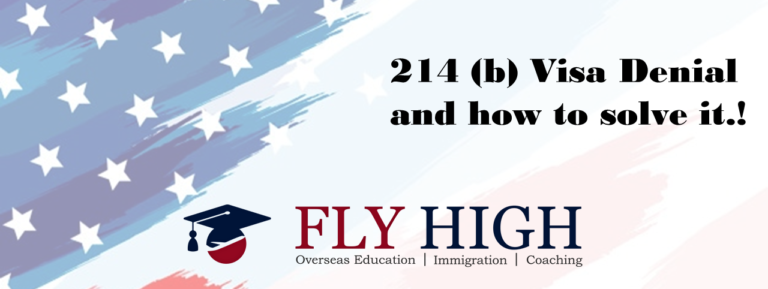
Comments